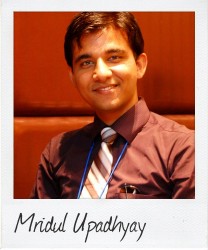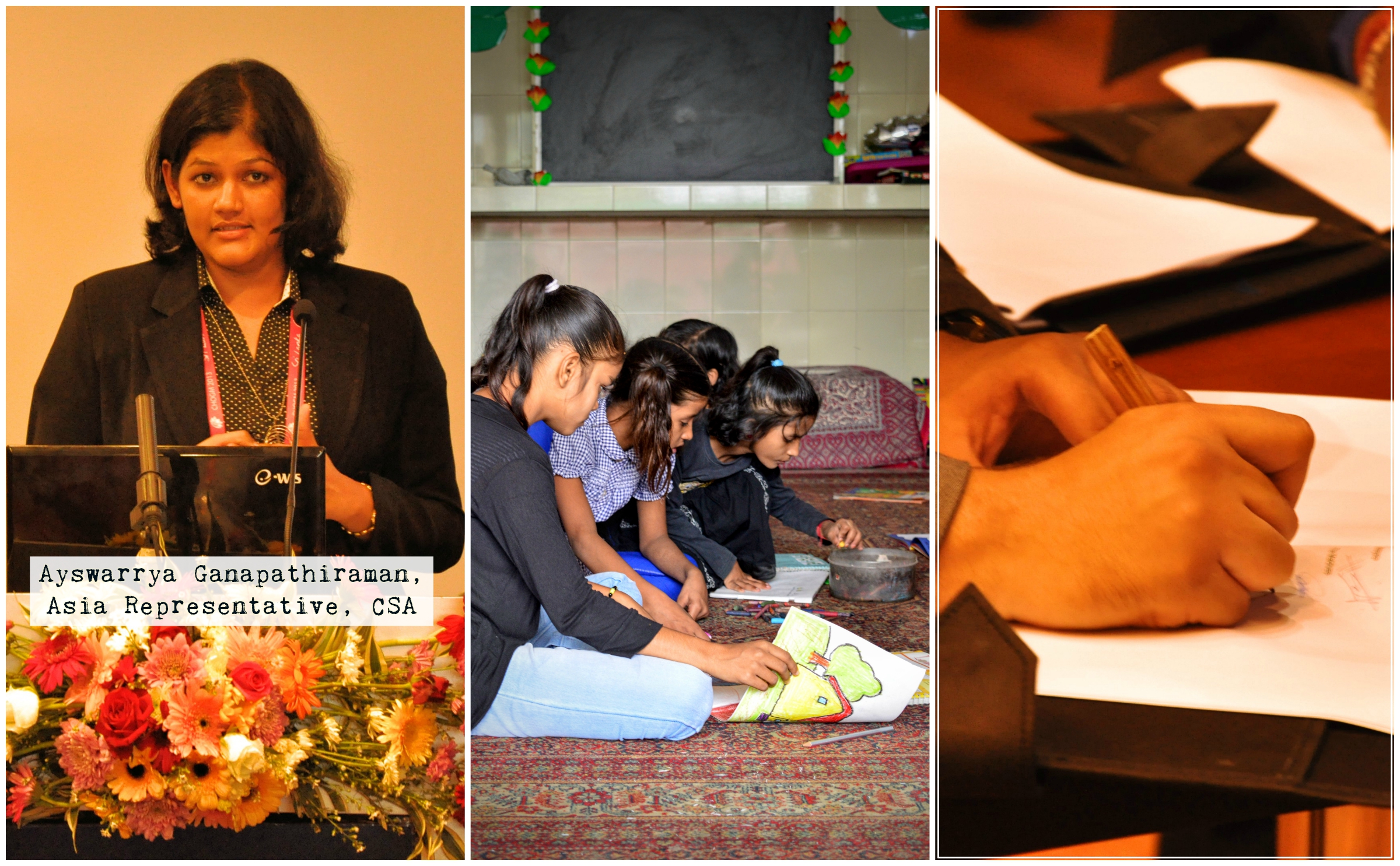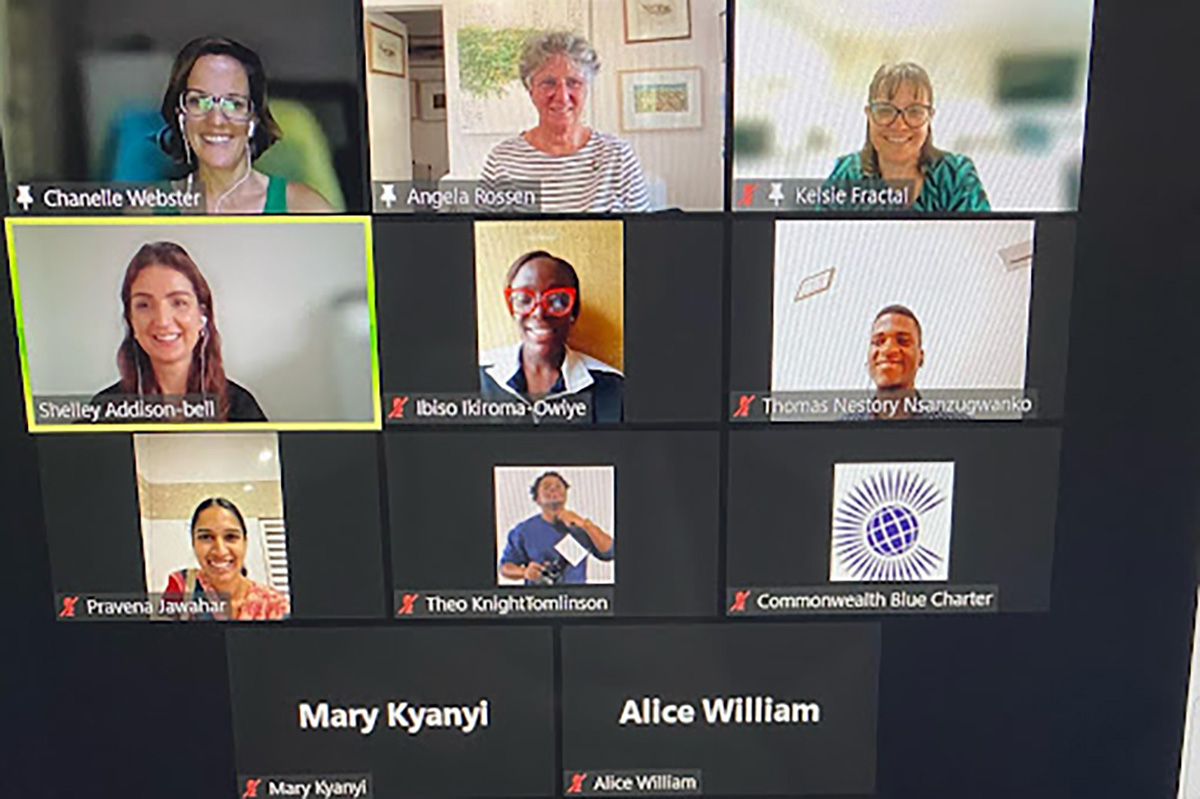“Interview: a Commonwealth student leader”
November 12 Mridul Upadhyay, 24, a Commonwealth Correspondent from New Delhi, interviews Ayswarrya Ganapathiraman, a student leader and the Asia Representative in the Commonwealth Students’ Association (CSA) Steering Committee. He finds that her insight helps to explain the role of the CSA.
Mridul Upadhyay, 24, a Commonwealth Correspondent from New Delhi, interviews Ayswarrya Ganapathiraman, a student leader and the Asia Representative in the Commonwealth Students’ Association (CSA) Steering Committee. He finds that her insight helps to explain the role of the CSA.
Mridul: Hi Ayswarrya! What is the CSA and why is it important?
Ayswarrya: CSA is an umbrella organization for apolitical student bodies across the Commonwealth. We primarily lobby for student rights and quality education. We all know how valuable education is to transform lives. It’s sad that nowadays a child’s right to quality education depends on parents’ earning. Education is not for a privileged few. CSA believes this system could be improved if students, who are directly impacted, are actively and meaningfully engaged in policy-making concerning education.
Mridul: How has it been for you as a regional representative?
Ayswarrya: Personally, it has been a very challenging and long learning experience. I’ve been able to learn first-hand governments’ working, policy-making and organisation management. I am a better communicator and individual today. During the 19th Conference of Commonwealth Education Ministers (CCEM) in Bahamas, Commonwealth national education ministers recognised and lauded CSA’s efforts. They also declared that henceforth, all youth forums during CCEMs will be officially termed as ‘Student Forums’. During the recent Asia Region Youth Ministers Meeting (ARYMM), national youth ministers promised to include the students in all decision making regarding child and student development and education policies.
Mridul: Who are CSA executives? How are they selected?
Ayswarrya: Currently, we have a steering committee tasked with laying foundations of the organisation and then electing CSA executives. Steering committee members got elected during the 18 CCEM for 3 years term. During the 19 CCEM, the new executive council could not to be elected due to logistical issues and another steering committee was elected.
For the election process of CSA executives, national official delegations at the Commonwealth Student Congress elect these representatives through an online voting process during the Congress. Before the voting, the members of the Congress can pitch questions to the candidates during husting. The entire process is overseen by the Electoral Board, which includes a Returning Officer selected by the Commonwealth Secretariat.
Mridul: What has CSA Steering Committee achieved so far? And how effective and productive were these three years?
Ayswarrya: The committee first worked on drafting a constitution and strategic plan for CSA, which was reviewed and adopted at the 19 CCEM in the Bahamas in June 2015.
To be taken seriously, you need to be visible first. Also your partnerships strengthen your reach and credibility. We go about it by raising awareness through various platforms to build student networks, partnerships with higher education ministries, universities, corporate sector and other organisations sharing similar goals, including Essex Bar Society, Cisco Network Academy and Association of Commonwealth Universities etc. Also we constantly partake in events for young people and education.
We also conduct events at all levels to involve as many students as possible, encourage individual student participation as Commonwealth Student Organisers, and provide students platforms to express their issues, concerns and opinions. We have also set up a Free Legal Aid Consortium for students across the Commonwealth. The steering committee was also consulted while sending recommendations to the post-2015 working group on UN SDGs.
Currently we are also working on a report on the status of students across the Commonwealth, in consultation with National Union of Students (NUS) UK. We’re in the process of negotiating an ICT initiative: free services for setting up websites for educational institutions and student organisations that do not have one.
Mridul: What were the main challenges you faced and what solutions do you propose for them?
Ayswarrya: Main challenges faced were geographical extent, diversity and communications, mainly because of different time zones and weaker virtual communication channels. The Commonwealth Secretariat helped us through giving us meeting platforms like WebEx. We are working on coming up with a better solution for another problem, which is the short term (usually a year) of student leaders with their organisations. Approaching national education ministries is also tough, but attending student and youth conferences helped us in it.
Mridul: What mistakes can a newly selected executive make and what are your suggestions?
Ayswarrya: A problem with anybody new is that they have a very good idea of issues but their methods to tackle these issues are often quite unrealistic. And they realise it only after trying it once and facing problems. We faced these too. That is why CSA has a three month transition phase, when the old team is still in power and the new team works with them. This is a phase for knowledge transfer, to learn and think of different solutions: more practical and less idealistic.
Mridul Upadhyay: You have given amazing and clear details for the readers. CSA, a team of six steering committee members, has come a long way. I hope this interview will increase the understanding of CSA’s working and help young student leaders to raise their voices through CSA. Thanks a lot for your time and all the best.
Ayswarrya: Thank you.
Reach me on Twitter @Mridul_upadhyay
Photo credit: Mridul Upadhyay
…………………………………………………………………………………………………
About me:
A thinker, a social volunteer, a mechanical designer, a theater artist, a guitar player, a lyrics-writer, an amateur sketch artist, a cook, a traveler, a wannabe civil servant – there are many phrases I enjoy trying on me to describe what I see myself as.
…………………………………………………………………………………………………
Opinions expressed in this article are those of the author and do not necessarily represent the views of the Commonwealth Youth Programme. Articles are published in a spirit of dialogue, respect and understanding. If you disagree, why not submit a response?
To learn more about becoming a Commonwealth Correspondent please visit:
http://www.yourcommonwealth.org/submit-articles/commonwealthcorrespondents/
…………………………………………………………………………………………………




